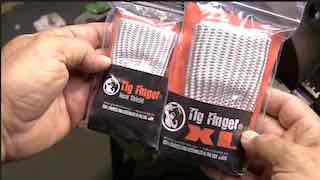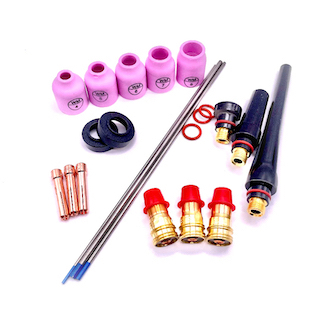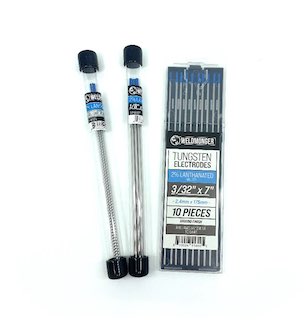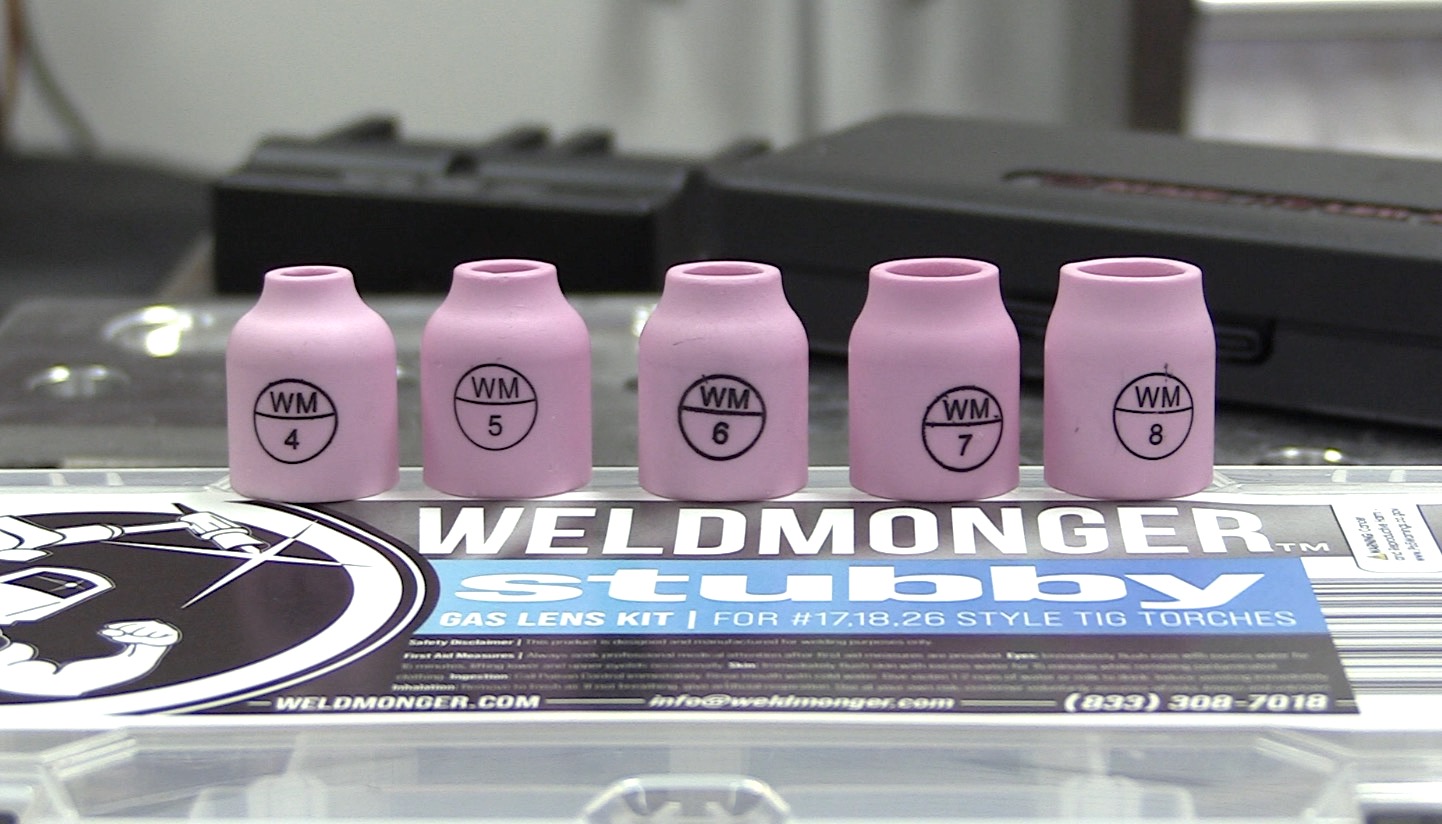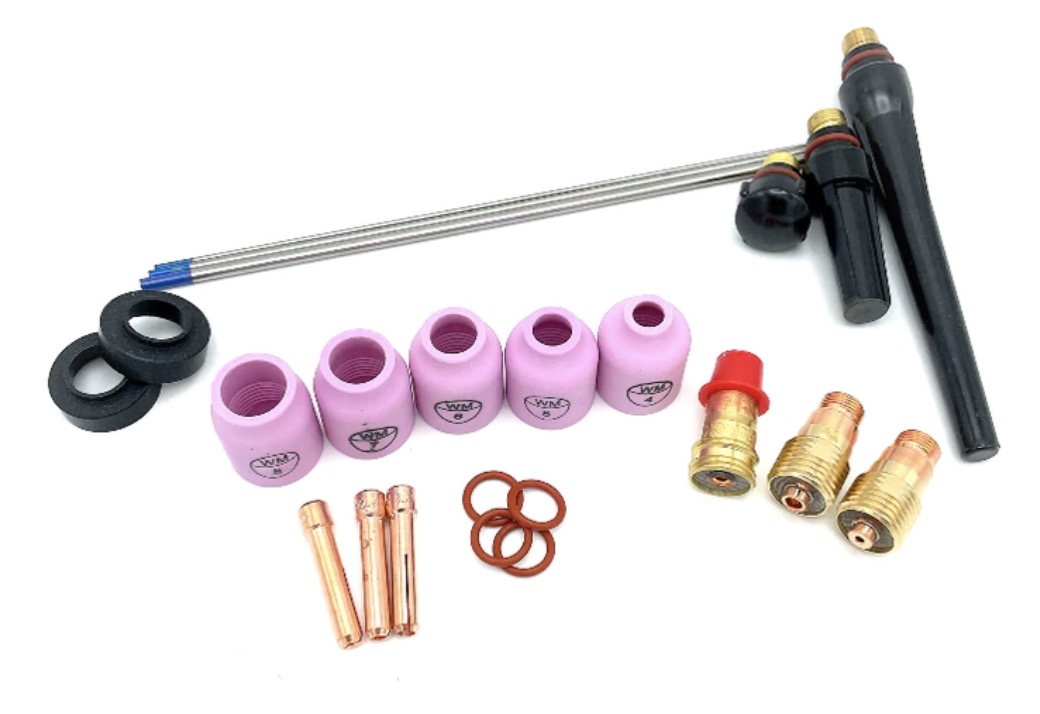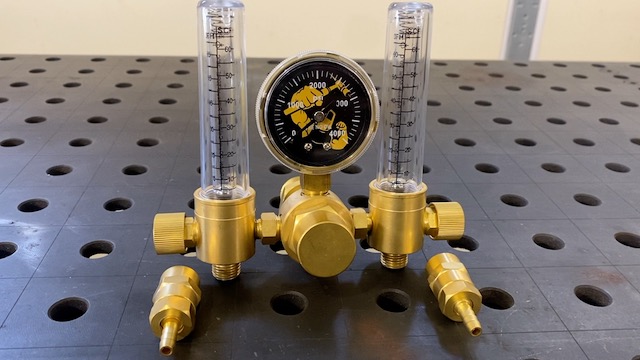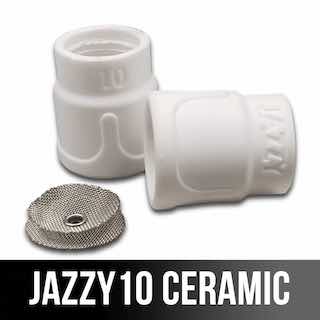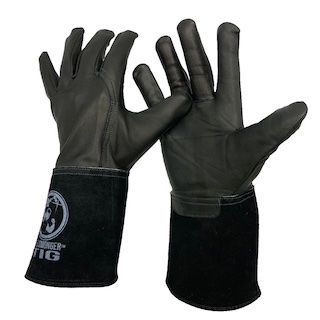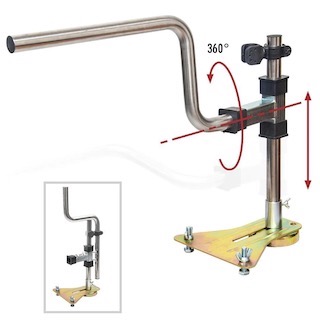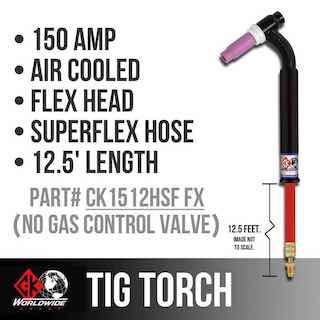Welding Stainless Steel sheet with a Homemade Chill Fixture
This Copper fixture for outside corner joints Really Works...enough said
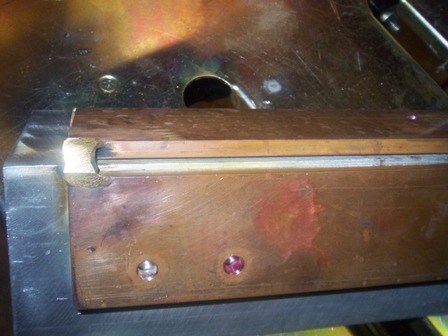
Copper conducts heat better than most anything. Thats why copper is used for heat sink type fixtures
I scrounged up some scrap copper bar stock 1/4"---.250"---6mm thick and welded my fixture using aluminum bronze tig welding rod.
Copper melts at over 1900 f
Aluminum Bronze melts at around 1300 f.
Even though the melting point of copper is lower that steels, copper takes tons of heat to weld because the heat dissipates so fast.
That is the reason you see the tip of the aluminum bronze filler rod balling up a lot in the video. It takes so much amperage to weld copper that if you chose a rod that is a bit small, it melts before you can get it fed into the weld.
That is true with most metals. It definitely holds true with aluminum...another really conductive metal.
If you are welding with lots of amperage and use too small a filler rod, its hard to stab it in the puddle quickly enough to prevent it from balling up from the big plume of heat around the arc.
I was using pure helium to weld my copper fixture and my arc was really hot.
By the way, if you decide to make one of these copper welding fixtures, and dont have any aluminum bronze or silicon bronze filler rod...you can get some household wiring and strip the insulation. That works pretty good.
You can weld copper with argon, It just takes more amperage than it does if you have helium.
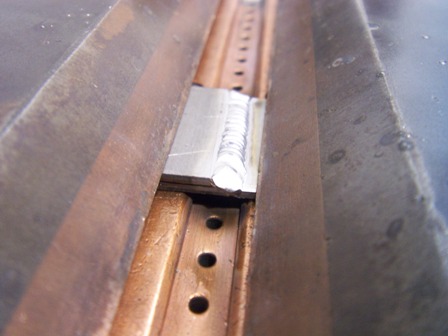
Welding stainless steel sheet metal goes better with some copper chill
This fixture is steel but has copper inlaid inserts to draw heat form the weld.
Notice that there is zero discoloration in the weld. Its silver. The pieces of metal welded in this fixture were small pieces of chromoly steel sheet metal about .050" thick that would have discolored like crazy if welded without any heat sink.
The holes provide argon shielding to the back side.
Fixtures like this are commonly used for welding stainless for certification tests in the aviation and aerospace industries.
Copper is almost magical when it comes to welding stainless steel.
When clamped right next to the weld, Copper seems to offset the poor conductivity of stainless steels.
If you grasp that fact and utilize it, using copper for heat sinks is one of the best tig welding tips ever for welding stainless steel sheet metal.
Copper is even sometimes for backing instead of argon.
It is not quite the same or as good as shielding the back side with argon, but sometimes its good enough and its a lot easier and cheaper.
Try it sometime. Get a copper plate and clamp 2 pieces of stainless sheet metal to it and weld them together. The back side of stainless will blacken and sugar if it is welded with the back side exposed to air....but if the back side is backed with copper, it will not blacken or sugar.
(the term "sugar" refers to excessive oxidation to where the surface is granulated like sugar granules)
Heck they even make copper "spoons" for filling holes in sheet metal and they actually work great.
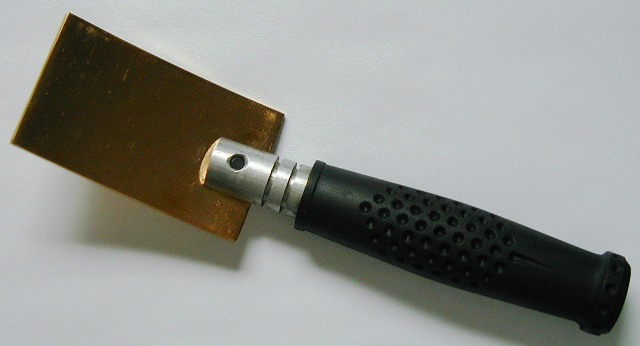
And better yet are these purge boxes made from perforated copper where the argon comes out
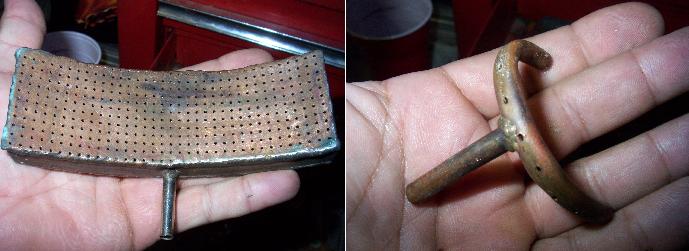
It takes so much amperage to weld copper that usually, no matter what type of metal you are welding, copper works as a backup material. One exception would be columbium/niobium. (but how many of us weld that stuff?)
Mattias from Sweden sent in a tip for a copper heat sink that he designed for welding outside corner joints on stainless steel tanks. I thought is was such a good idea, that I made one for myself to demonstrate how well it works for tig welding outside corner joints on stainless tanks.
THANKS AGAIN MATTIAS!!
I have welded a bunch of stainless steel tanks in my day. Tanks for holding water, fuel, trash, oil, coolant, beer, etc.
When you have a heat sink, stainless steel welds better and faster. It discolors less, and warps less and that my friend is big, big deal because if you have welded much stainless at all, you know that it tends to warp a lot..and if it overheats too much, stainless steel can lose its corrosion resistant properties.
A simple fixture that makes a big difference on stainless sheet outside corner joints
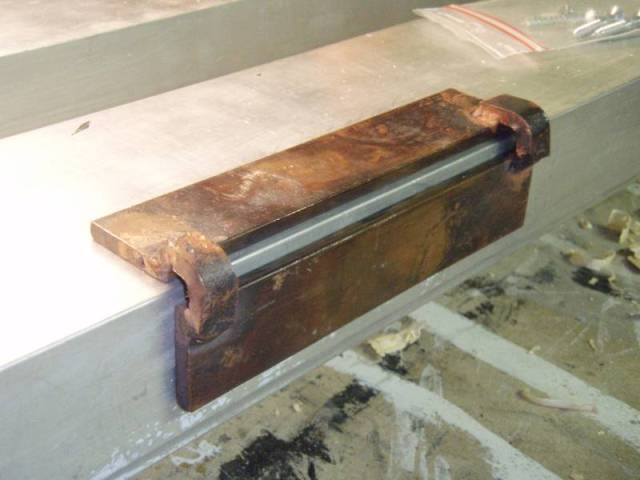
exit welding stainless with copper chill and see more tig welding tips


